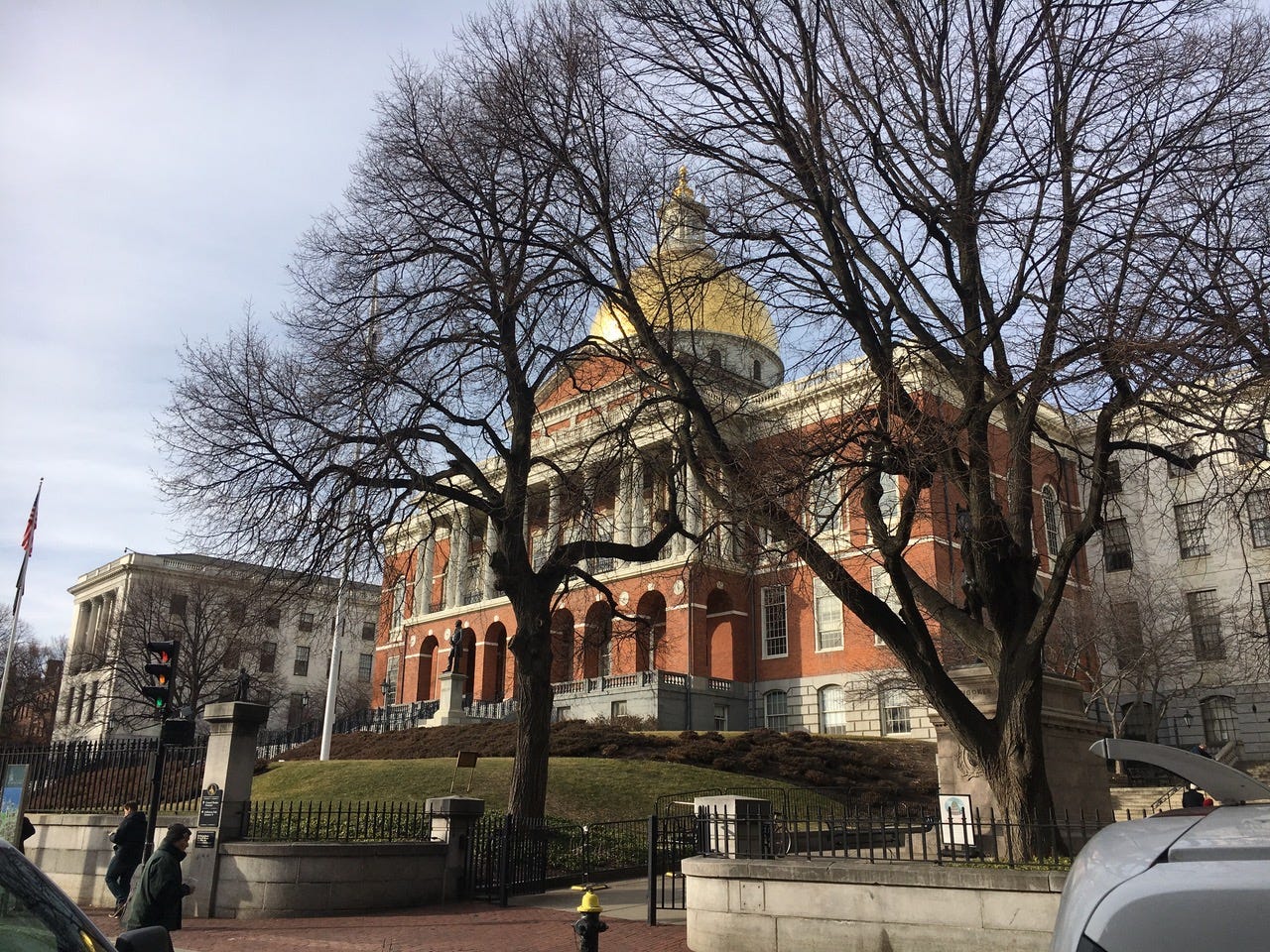They had one job
The Massachusetts Legislature has closed up formal business for the year, starting their holiday season early.
That’s cold comfort, literally, for thousands of people who face the prospect of spending those holidays in cramped hotel rooms. If they’re lucky. Or on the streets if they’re not.
Despite months of opportunity to work with Governor Maura Healey to accommodate migrants and other families and pregnant women under the state’s right-to-shelter law lawmakers dawdled, seemingly content to let Healey seek solutions.
And take the political heat. From both sides of the controversial hot potato.
Until the 11th hour.
Healey declared a state of emergency in August and asked lawmakers in mid-September for $250 million to fund additional shelter beds for people, about half of whom already lived in Massachusetts but were priced out of the market.
The presumption was the funding could be a part of a “closeout” supplemental budget for fiscal 2023, something that typically needs to be done by October 31.
House Speaker Ron Mariano offered a variety of reasons why the chamber, which under the state Constitution, must initiate all spending bills, didn’t act. The last pronouncement:
“Any temporary policy changes would be better addressed by the Administration through the issuance of an executive order formally declaring a state of emergency, as they have real-time information regarding capacity issues and staffing shortages, and are in constant communication with local officials during this rapidly developing situation.”
Finally, on November 8th — one week before legislative rules require they end formal sessions that allow roll call votes — the House offered up a bill that gave Healey the money she requested.
And restrictive rules — such as creating an “overflow” option that would support families for whom space is not immediately available, a possibility that became a reality when Healey imposed a cap of 7,500 families in the overburdened system.
The Senate followed up this week with their own supplemental spending plan which offered the same amount of money and fewer restrictions.
And leaving just 24 hours to negotiate a compromise after failing to act for three months. A questionable move at best for a governmental body that could lose a foot race with a glacier..
Now things get tricky as the 25 House and three Senate Republicans (soon to become 24 and four when Peter Durant of Spencer switches chambers) has far more power than they would normally have in the face of the Democratic supermajority.
House and Senate leaders named a conference committee to work out the differences early Thursday morning, promising to get right to work.
"We just want to prevent people from sleeping in the streets or sleeping in airports or sleeping in our train stations or emergency rooms," House Ways and Means Chairman Aaron Michlewitz told sleep-deprived reporters.
Nice words that ring very hollow as the majority of lawmakers head out for the holidays. And a promise that will be even harder to keep under legislative rules.
During the infomal sessions that will take place twice weekly until early January any one lawmaker can object to a proposal, stymieing action. That seems a safe bet since the tiny GOP caucus has raised questions about aspects of the Healey plan — including the basic premise of whether the nation’s only right-to-shelter law is appropriate.
To be fair, it’s not as if lawmakers sat on their hands Wednesday.
As the hours dwindled down, the House passed a measure to tighten the rules for long-term care and the Senate passed, for the third consecutive session, a bill designed to lower prescription medicine costs.
The Senate also found time to include a provision that would make it easier for Robert Kraft and the New England Revolution to build a soccer stadium in Everett.
The inertia, a result of traditional interbranch rivalries that have only intensified, goes against the adage that the executive proposes and the legislature disposes.
Some might rightly see the continued failure of lawmakers to “dispose” (63 laws so far this year, largely minor measures like allowing state employees to share sick leave benefits or creating liquor licenses) as a strong sign things need to change in the top down bodies which are having an increasingly hard time working out their differences.
State Auditor Diana DiZoglio is one of them, having served in both branches over 10 years. She says her authority includes auditing the Legislature, including its rules and how it goes about its business.
Attorney General Andrea Campbell disagreed, setting up a battle over a proposed constitutional amendment to give the auditor that power. If successful in collecting signatures and getting the Legislature to even consider placing the issue on the ballot, the earliest voters could have a say is 2026.
And even if voters give her the power to review rules and committee assignments, there’s the question of enforcing proposed changes. Not to mention it will have no effect on the political and personal dynamics that play a mjor role in governing.
Meanwhile, there’s this big building on Beacon Hill that won’t have much going on for the next couple months. Maybe it can be an overflow center?




